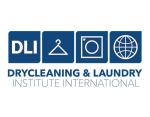CHICAGO — The pressures of leadership can be magnified if the owner of a business feels he or she is all alone. The truth is that networking groups are available to connect with peers are available to are willing to offer advice, a new perspective or just lend an ear to listen.
In Part 1 of this series, we examined some of the newer networking opportunities available in the drycleaning field, and in Part 2, we looked at some that have been around for decades. In Part 3, we took a dive into the networking options cleaners have available to them today. Today, for the conclusion of this series, we’ve asked some cleaners taking part in a peer-to-peer forum what that opportunity means to them.
Snapshots from a Networking Forum
During a recent meeting of the peer-to-peer forum hosted by the Drycleaning & Laundry Institute (DLI), several cleaners offered their opinions about the networking opportunity and what it has meant to them.
“After COVID, when these peer Zoom-to-Zoom meetings began, this was the highest level of networking we’ve ever done,” says Maria Kamperides, owner of Boston-based Columbus Cleaners. “From our perspective, for our size, we had never had this opportunity to meet so many people from all over the country and Canada. I feel the wealth of information that we’ve gained is priceless for us.”
“I don’t think I could have survived a pandemic without these Tuesday calls,” says Ellie Tarnutzer, owner of Lake Mills Cleaners & Dyers in Lake Mills, Wisconsin. “They’ve been a real godsend.”
“Not only have these calls helped us all survive the pandemic,” Kamperides says, “but they have raised the level of our operations. I think we’re all looking to improve — to change and adapt to the new ideas we’ve picked up over the past two-plus years.”
“Networking allows us to learn more and more about all the problems that are going on throughout the industry, and share the information with each other and get solutions,” says Sidney Chelsky, executive director of the Canadian Fabricare Association. “So, we’re all benefiting from it as a result. There are some tremendous new ideas that I’ve picked up that I’m able to share with our members for their benefit and for them to improve their businesses.”
“I think local networking is so powerful because it gives you a chance to expose yourself to practices and people outside of the industry,” says Norman Way, vice president of Puritan Cleaners in Richmond, Virginia. “It’s amazing when you realize people are dealing with similar problems in a different area, and you hear solutions from a different standpoint. Joe Cocker said it best: ‘I get by with a little help from my friends.’ So, the more friends we have, the more we can get help. It also gives us the opportunity to give back and help others.”
“This was such a blessing to me,” says Rusty Smith, president and CEO of Forenta, a manufacturer of drycleaning finishing equipment based in Morristown, Tennessee. “How often can I get an incredible cross-section across North America of what’s going on in the actual drycleaning store? Before this type of networking, I would have to make phone call after phone call, email after email, and visit after visit to get information that I get here every week. I’ve learned so much about the industry that would have taken hours, weeks, months, years to accumulate.”
Many of the dry cleaners who didn’t survive the past couple of years were those who were determined to go it alone, says Bob Singer, co-owner of the Southern California-based Flair Cleaners.
“They just stood out there like an island and thought they had all the answers,” he says. “People who know how to network, and are willing to network, generally are survivors, and they’ll continue to grow. The industry wound up getting better as a result of the pandemic, and those of us who network will continue to get better and better.”
For Part 1 of this series, click HERE. For Part 2, click HERE. For Part 3, click HERE.
Have a question or comment? E-mail our editor Dave Davis at [email protected].








































































